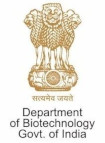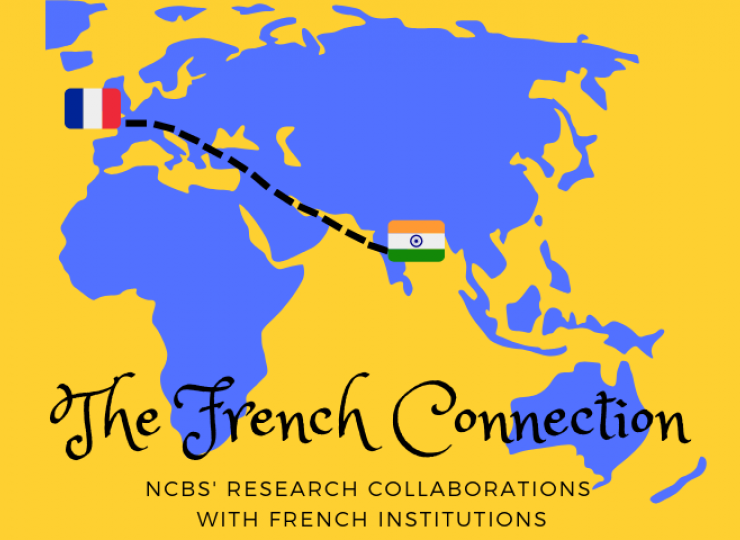The Google search for ‘bipolar disorder’ usually shows us the result as ‘this is a mental illness marked by extreme shifts in mood’, and that ‘the exact cause is not known but is believed to be a combination of genetics, and altered brain structure…’ But why or how is brain structure altered; or exactly how genetics contributes to bipolar disorder, has been unclear. Now, using stem cells generated in ADBS, researchers at NIMHANS show that part of the answer lies in aberrations in migration of neural stem cells, and that genetic defects contribute to this abnormal feature of brain development. For this research finding, Dr. Salil Sukumaran of ADBS-NIMHANS was conferred the prestigious Hugh Gurling Award for Best Poster at the World Congress of Psychiatric Genetics 2020. Salil has been one of the ten finalists for this year and he received the award for his poster titled ‘Damaging variants in NRG2 and LAMA1 in bipolar disorder may impair neuronal migration.’

Image Credit: Shatabdi Pal
Launched in 2016, the Accelerator program for Discovery in Brain disorders using Stem cells (ADBS), a joint stewardship of three institutions from Bangalore, India – the National Centre for Biological Sciences (NCBS), the Institute for Stem Cell Biology and Regenerative Medicine (inStem) and the National Institute for Mental Health and Neurosciences (NIMHANS) and supported by the Department of Biotechnology, is a new scientific venture to understand mental illness by harnessing the power of sophisticated clinical investigations, modern human genetics, and stem cell technology. “This is the first study from the ADBS team at Bangalore that combines the multiple parts that are the core strengths of the consortium – sequencing patients’ DNA, conducting MRI scans, and carrying out functional studies using stem cells from patients. The idea at the conception was that by piecing together individual results from each of these categories, for the same set of patients, we could gain unparalleled insights into underlying biology of mental illnesses”, said Dr. Biju Viswanath (Associate Professor, Dept. of Psychiatry, and one of the lead ADBS investigators at NIMHANS).
Cellular migration is the process by which stem cells, during brain development, get to their final destination and form connections necessary for normal brain functioning. “We found mutations in two genes, NRG2 and LAMA1, critical in cell migration. Further analyses showed the expression of these genes also changed because of these mutations. To tie everything together, MRI scans from the same patient showed decreased brain volume, which is what you’d expect for cells that show abnormal migration”, remarks Dr. Reeteka Sud, Research Coordinator of ADBS Repository at NIMHANS. Dr. Sud & Dr. Viswanath are both corresponding authors on this study.
The first Virtual World Congress of Psychiatric Genetics (WCPG) was held during October 16-22, 2020. The key theme of this international conference is all about the unprecedented discovery and advances in psychiatric genetics. With the growing understanding of the genetic and molecular basis of psychiatric disorders, new opportunities for the identification of novel treatments are on the horizon. The WCPG is the premier international scientific meeting for research in psychiatric genetics and related areas in which leading experts, scientists, and researchers from all over the world in the area of genetics, neuroscience, and psychiatry participate. Among other topics, this conference also highlights how genetics improves diagnostics and treatment of neurodevelopmental disease, provides an update on pharmacogenetics in psychiatry, and discusses how results from large scale genome-wide association studies can be translated for clinical application.

This award is named after British psychiatrist Hugh Gurling, who pioneered the research on genes related to severe mental illnesses. Gurling died of a heart attack in 2013. In honor of his contributions, during the annual meetings of the World Congress of Psychiatric Genetics (WCPG), an award is made for the best poster on the subject. The Hugh Gurling award is usually given to an investigator from a non-high income World Bank country, and who resides in such a country at the time of meeting, for an oral or poster presentation at the WCPG. “It’s great to see our work recognized at a prestigious and competitive platform like this. It is very exciting, indeed”, adds Dr. Sukumaran. The next steps, the researchers say, is to conduct similar studies using neural stem cells from other patients with bipolar disorder.
The article has been written with inputs from Reeteka Sud.










